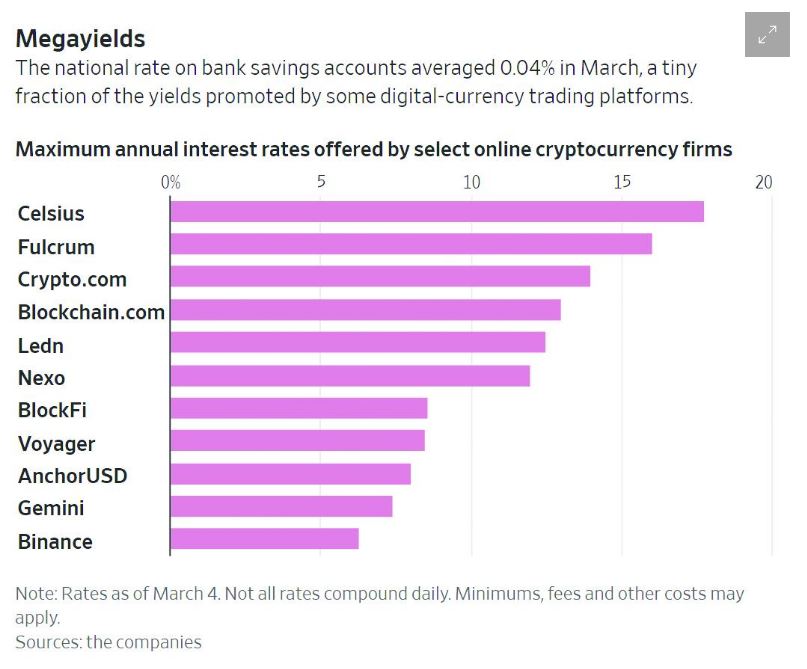Thailand: You Can Earn 6%, 8%, Even 12% on a ‘Savings Account’ — Yeah, Right
Investing for income in today’s markets is like slogging across the Sahara looking for a cold drink.
With bank savings accounts yielding around 0.04% annually, based on the national average, it would take more than a millennium for your money to double. No wonder so many investors are desperately searching for yield.
Some are even going so far as to consider websites and apps that urge you to buy and lend out the world’s hottest asset: digital currencies like bitcoin and ether.
Cryptocurrency trading platforms will pay you 6%, 8%, even 12% or more, on what some of them call “savings accounts.”
From that name, you might think these are much the same as deposits at a conventional bank. They aren’t.
In these arrangements, an online trading or lending firm will borrow your cryptocurrency and then, in turn, lend it to hedge funds or other investors and traders. You will earn, as interest, a portion of whatever those borrowers pay your broker.
At heart, that’s no different from what stockbrokers call a fully paid lending program. In that, you can earn interest by letting your broker borrow your shares. Similarly, you can earn a sliver of income when your mutual funds or exchange-traded funds lend out some of their securities to hedge funds or other borrowers.
For the many investors who don’t want to own virtual currency in the first place, the whole idea of using it to generate income should be a nonstarter. If you already own bitcoin or another cryptocurrency, lending it could be an option — if you weigh the risks.
These purported “savings accounts” are nothing like what a traditional bank offers.
First off, you are dabbling in cryptocurrency. That is the asset that is in your account. And, unlike a bank deposit, your balance in bitcoin or other digital money won’t be protected by the Federal Deposit Insurance Corp. Nor will the Securities Investor Protection Corp. buffer you against loss in a liquidation, as it would at a conventional brokerage.
The rate you earn when a firm borrows your digital money can swing wildly over time and from one trading platform to another. You might earn only simple, rather than compound, interest.
Firms will generally pay your income in units of the same virtual money, not dollars. You may incur delays, withdrawal charges or conversion fees if you want to turn them into greenbacks or a different currency.
Most important, by lending your digital assets to the platform where you trade or hold them, you become an unsecured creditor of that firm. If it, or any entities it lends your assets to, have a problem, then so could you.
In plain English, if your bitcoin brokerage goes bust, you could end up standing near the end of the line in bankruptcy court.
“The yields are coming from real counterparty risk,” says Ari Paul, chief investment officer at BlockTower Capital, a digital-asset management firm.
“By lending your virtual assets to a brokerage, you’re effectively investing in the debt of a startup,” he says.
A single-digit yield may be too low to compensate for that risk.
So borrowers have to pay high rates to entice holders of virtual money into financing them.
Yields are also high because fledgling firms are battling to attract customers who will trade and hold assets with them, says Campbell Harvey, a finance professor at Duke University who studies the marketplace.
In addition, he says, a given broker may be offering high rates to entice customers to use its unique currency, which could otherwise struggle to find users.
The higher the rate you’re offered to lend your virtual assets, the riskier the transaction is likely to be.
All that helps explain why the yields on these currencies are so generous, even though crypto-financing firms have much lower operating costs than traditional banks.
What about the ultimate techno-nightmare? Could a digital currency go to zero and negate all your interest income by wiping you out? That’s always a possibility given the inherent volatility of cryptocurrencies, but some like bitcoin have also notched stratospheric returns of late.
If you’re a risk-taker who relishes the ride when an asset soars and can laugh off the losses when it crashes, then maybe you should consider letting a broker borrow your cryptocurrency at a generous rate.
After all, if you aren’t troubled by the extraordinary volatility of virtual money, you might as well earn some interest on it.
If the price continues to go up, the income will add to your return. If the price goes down instead, your interest earnings should at least mitigate your losses.
On the other hand, if you’re investing for income, you probably care about safety above all — not just the return on your capital, but the return of it. Bitcoin and other novel currencies are among the world’s most volatile financial assets. If you wouldn’t feel comfortable taking the risk of holding them, it makes no sense to take the risks of lending them, either.
Source: https://www.bangkokpost.com/business/2079851/you-can-earn-6-8-even-12-on-a-savings-account-yeah-right


 English
English




